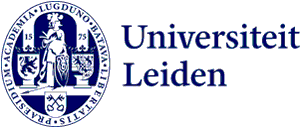Lecture | Panel Discussion
Turkey’s Centennial: Democracy, Diplomacy, Security
- Date
- Thursday 30 November 2023
- Time
- Explanation
- Please register below
- Address
-
Anna van Buerenplein
Anna van Buerenplein 301
2595 DG The Hague - Room
- 2.21

On October 29, 1923, the Turkish Republic succeeded the defeated and partitioned Ottoman Empire. The year 2023 marks the centenary of the Republic of Turkey. For a century, it remained the focus of international attention due to its strategic position between Europe and Asia. The Republic’s political, economic, cultural, and societal constructs transformed manifold. It shifted between more democratic and authoritarian regimes.
In some periods of its history, Turkish society became more secular. In more recent periods, religion has regained a place in public life. As a nation emerging from the ashes of the Ottoman Empire, it has become an important regional and global power. Turkey's political changes since the end of the Cold War and the Global War on Terror have rendered it a pivotal country situated amidst regional conflicts at the crossroads of the Balkans, the Eastern Mediterranean, the Black Sea, the Caucasus, and the Middle East.
Our panel will discuss the political transformations regarding democracy in Turkey and their significant effects on the country’s diplomacy and security policies in relation to the EU, NATO, and the broader Middle East. Scholars from diverse fields will share insights on Turkey’s past, present, and future in the context of democracy, diplomacy, and security.
Drinks will be served afterwards.
Online attendance will be possible. The link will be supplied at registration.
About the speakers
Tahir Abbas, FAcSS is Professor of Radicalisation Studies at Leiden University’s Institute of Security and Global Affairs in The Hague. He graduated with a PhD in Ethnic Relations from the University of Warwick in 2001. His current research interests include Islamophobia and radicalisation, gender and violence, and polarisation and extremism. He is the author, editor, and co-editor of twenty books, as well as the author, editor, and co-editor of over one hundred peer-reviewed articles and chapters. His recent edited books are Global Counter-Terrorism: A Decolonial Approach (eds., with S. Dutta and S.I. Bergh, Manchester University Press, 2024, forthcoming) and Ethnicity, Religion, and Education in the UK (eds., with K. Iqbal, Routledge, 2024, forthcoming).
Filiz Doğan is a guest researcher at the Institute of Security and Global Affairs. Her PhD focused on EU Common Security and Defence Policy and its challenges regarding the 2011 Libya Crisis and the 2014 Ukraine Conflict, supervised by Madeleine Hosli and Beatrix Futak Campbell.
Seda Gürkan is Assistant Professor in European Approaches to Security, Diplomacy and Global Affairs at Leiden University’s Institute of Security and Global Affairs (ISGA). She is also an Affiliated Fellow and Professor at the Department of Political Science and the Institute for European Studies (IEE), at Université libre de Bruxelles (ULB). Her teaching and research interests include EU foreign policy (with a focus on the Eastern neighbourhood, human rights, enlargement, EU-Turkey relations), the crises the EU has been facing since 2009, EU institutions, European integration theories, parliamentary diplomacy (European Parliament) and emotions in international relations.
Müge Kınacıoğlu is a professor of International Relations and currently works as a lecturer at the Institute of Political Science at Leiden University. She received an MA in Political Science and an MA in International Affairs at Marquette University, USA, as a Fulbright scholar. She obtained her PhD from Bilkent University, Turkey. She was a research fellow at the London School of Economics between 2004-2007. Her research interests include security studies, the politics of international law, the use of force and foreign armed interventions, and Turkish foreign policy and identity.
Alp Yenen is a university lecturer on the modern history and culture of Turkey at the Institute for Area Studies at Leiden University. He holds an MA degree in Middle Eastern Studies, Political Science and Economic Geography from the University of Munich and a PhD in Near and Middle Eastern Studies from the University of Basel. He works primarily on the political history of modern Turkey and the Middle East in the twentieth century. He studies transnational and transgressive politics during transitional periods, such as the end of the Ottoman Empire and the end of the Cold War.
